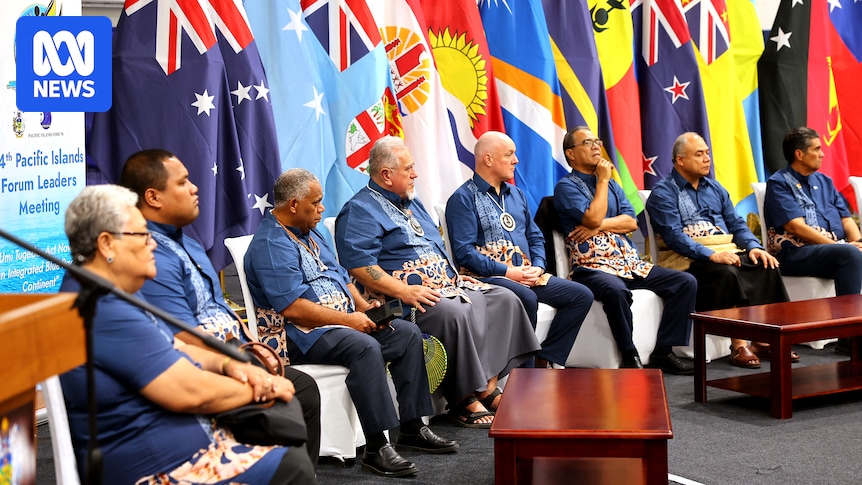
Pacific leaders have reaffirmed Taiwan’s right to participate in the Pacific Islands Forum (PIF), rejecting China’s efforts to exclude the democratically governed island from the region’s premier meeting. This decision, made during a recent gathering in the Solomon Islands, underscores the complex geopolitical dynamics at play in the Pacific region.
China has been actively lobbying Pacific Island nations to revoke Taiwan’s status as a “development partner” in the PIF and to annul a 1992 agreement that permits Taiwan to engage with its remaining Pacific allies during the annual forum. However, the Pacific leaders’ decision to maintain the status quo highlights the challenges China faces in expanding its influence in the region.
Historical Context and Diplomatic Tensions
The tension between China and Taiwan over participation in international forums is not new. Last year, China’s ambassador to the Pacific expressed outrage when the Pacific reaffirmed Taiwan’s status, leading to the removal of a contentious sentence from the final communique. Despite this, Pacific officials insisted that the sentence was never intended to be included.
Earlier this year, China’s embassy in Tonga issued a statement urging the correction of “erroneous Taiwan-related content” in the 1992 Forum Communique, citing that the “vast majority” of Pacific nations now recognize Beijing over Taipei. This statement reflects China’s ongoing efforts to isolate Taiwan diplomatically.
Intense Discussions and Regional Implications
The recent discussions among Pacific leaders were reportedly intense, with one official describing them as “very fraught and difficult.” Despite these challenges, the leaders ultimately decided to uphold the 1992 decision on development partners, signaling Taiwan’s continued participation in the PIF.
One Pacific island government source noted the difficulty of expelling Taiwan as long as it maintains alliances in the region. Although Taiwan’s allies in the Pacific have dwindled from six to three since 2019, those remaining allies are treated with respect, complicating China’s efforts to isolate Taiwan.
“It is impossible for Pacific leaders to effectively expel Taiwan so long as it maintains Pacific allies,” said a source familiar with the discussions.
China’s Influence and the Future of Regional Politics
The outcome of the PIF meeting is a setback for China’s strategy to leverage its growing influence in the Pacific to marginalize Taiwan. The PIF Secretary General, Baron Waqa, confirmed that the leaders discussed the issue during their retreat in Noro, Solomon Islands, and decided to maintain the status quo.
“Based on the leaders’ decision… including the retreat as well, there’s nothing changed,” Waqa stated. “The 1992 decision is still there.”
Meanwhile, the Pacific leaders also supported Australia’s bid to co-host the upcoming Conference of the Parties (COP31) UN climate meeting with Pacific nations, despite Türkiye’s refusal to withdraw from the contest. This move demonstrates the Pacific’s strategic collaboration with Australia on global issues.
Looking Ahead: Climate Action and Regional Unity
Palau President Surangel Whipps Jr., the incoming chair and host for next year’s Pacific Islands Forum leaders meeting, emphasized the importance of hosting COP31 in Australia and the Pacific. He described it as an opportunity to showcase the region’s resilience and advocate for urgent climate action.
“We want to host COP31, we deserve to host COP31,” Whipps stated, highlighting the support for the bid.
As the Pacific leaders navigate these complex geopolitical waters, their decisions will continue to shape the region’s future. The reaffirmation of Taiwan’s participation in the PIF and the push for COP31 highlight the delicate balance of power and diplomacy in the Pacific. The coming weeks will be crucial as the Pacific nations work closely with international partners to secure their interests and assert their influence on the global stage.





